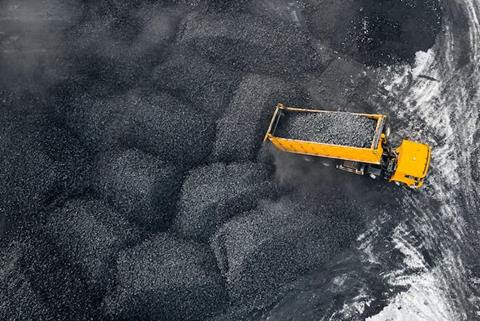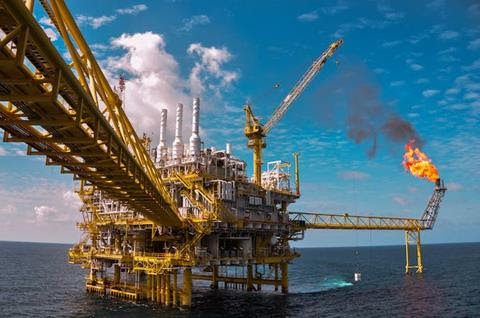*[Enwl-eng] How oil firms are torpedoing climate action
enwl
|
No images? Click here  Halting global heating at 1.5°C and averting catastrophic climate change will require sacrifices. Specifically, it will require fossil fuel companies sacrificing potential revenue to preserve a liveable planet. Instead of being dug up and sold, 90% of the world's remaining coal and 60% of its oil and gas will need to stay underground by 2050, according to a study published in 2021. But with so much money on the line, the fossil fuel industry is digging in for a long fight. You're reading the Imagine newsletter – a weekly synthesis of academic insight on solutions to climate change, brought to you by The Conversation. I'm Jack Marley, energy and environment editor. This week we're looking at how legal compensation for investors in coal, oil and gas is blocking climate action. "US$20 billion: That’s how much American investors think Canadian taxpayers should fork over to compensate them for their failed bid to develop a liquefied natural gas (LNG) facility in Québec," says Kyla Tienhaara, Canada Research Chair in Economy and Environment at Queen's University, Ontario. "That’s almost a fifth of the province’s total budget for this year." The Québec government had rejected plans to build a port in which large ships load and unload LNG, a fossil fuel, on the basis that it would increase emissions of the greenhouse gases driving climate change, Tienhaara explains. "Canada faces a no-win situation — a catch-22. If the government does not rapidly phase out fossil fuels, it will fail to meet its commitments under the Paris Agreement to address the climate crisis," she says. "But when it takes steps to do so, foreign investors invoke international trade and investment agreements like NAFTA and threaten to drain public coffers." 'Lost future profits' Canada's dilemma will be familiar to countries around the world. For example, the International Monetary Fund offered Pakistan a loan of US$6 billion in 2019 on the condition that then-prime minister, Imran Khan, implemented austerity. Nationwide strikes followed, and less than two weeks later, a World Bank tribunal ordered the south Asian country to pay a mining company US$5.8 billion dollars, which would all but eclipse the (ultimately ruinous) loan. The bills issued to Québec and Pakistan are both the result of investor-state dispute settlements, or ISDS. These are legal cases arbitrated by the World Bank Group between foreign companies and states. ISDS hearings are conducted in private but they allow corporations to challenge government measures designed to protect public health or the environment. How do they do this? By arguing that states owe them damages for cancelling or curtailing projects they have invested in – even if those projects, like a coal mine or a gas terminal, threaten to blow the country's remaining carbon budget for staying within a habitable climate. "One might argue that a fair outcome, if the government was solely to blame, would be for the award to cover these sunk costs," Tienhaara says. "Instead [in Pakistan's case] it was more than 25 times that amount. That is because the tribunal chose to award the company 'lost future profits' from the project." Of course, companies cannot say with certainty how profitable the commodities they are being denied will remain during the decades they had expected to produce them. But that doesn't matter, Tienhaara says. "When it comes to the calculation of damages, there are very few constraints on arbitrators. As noted in one award, a tribunal generally has the freedom to 'arrive at a figure with which it is comfortable in all the circumstances of the case'." Paying the polluters The energy charter treaty (ECT) effectively enshrines the right of private companies to seek damages from governments taking action against climate change in 53 Asian and European countries. Since coming into force in 1998, the treaty has proved to be a boon for investors says Leïla Choukroune, a professor of international law at the University of Portsmouth: "The ECT has allowed energy and fossil fuel investors to receive vast sums of compensation. In 2021, Russia was ordered to pay US$20.5 million (£17.4 million) in compensation to Yukos Capital, an oil company, for expropriation ... Spain has been subject to 45 disputes under the ECT and has paid more than €800 million (£673 million) in claims." "While investment protection agreements allow investors to sue sovereign states, the reverse is not possible," Choukroune adds. The strength of fossil fuel companies and their investors in these disputes is aided by the fact that independent experts called upon to arbitrate are often anything but, Choukroune argues. "Few of the arbitrators who sit in ECT hearings are public international law experts ... Investors have in some cases appointed arbitrators who have acted as legal advisers for them previously. This raises the question of whether arbitrators can separate these roles and act impartially." The treaty was devised to prevent former Soviet states from taking energy firms or their infrastructure into public ownership, but it will continue to obstruct governments well into the future because of a clause which binds former members for 20 years after they leave. Some countries are still considering an early exit, while others, including the UK, place their trust in reforms to "modernise" the treaty by exempting fossil fuels from legal protection, Choukroune says. But given the in-built advantages for corporations in the ECT and other investor-state disputes, more than 100 academics wrote to the UK government in March arguing that continued membership puts climate targets in peril. Chamu Kuppuswamy, a senior lecturer in law at the University of Hertfordshire, describes a possible course of action: "One way to address this problem is for parties contracted to the energy charter treaty to withdraw from it en masse, and so escape the sunset clause which holds them liable two decades after leaving. These countries could also enter into a separate agreement to exclude investor-state dispute cases against each other. "Sustained public pressure ... could encourage enough governments to act decisively, fatally weakening the treaty and its grip on international climate action." - Jack Marley, Environment commissioning editor Was this email forwarded to you? Join the 20,000 people who get one email every week about the most important issue of our time. Subscribe to Imagine. Catch-22: Canada’s attempts to phase out fossil fuel might result in it paying the polluters To address the climate crisis, governments need to limit new fossil fuel developments. But foreign investors are often protected under trade and investment agreements. Climate change: ditch 90% of world’s coal and 60% of oil and gas to limit warming to 1.5°C – experts Our new study reveals how tight the world's remaining carbon budget is. World Bank ruling against Pakistan shows global economic governance is broken Abolishing the secretive World Bank Tribunal known as the ISDS won't solve all of the problems of global economic governance. But it seems a very good place to start. The Energy Charter Treaty lets fossil fuel firms sue governments – but its future is now in question The Energy Charter Treaty allows fossil fuel investors to sue governments over climate action – prompting EU countries to withdraw. Energy charter treaty makes climate action nearly illegal in 52 countries – so how can we leave it? A case brought to the European Court of Human Rights could pressure countries to leave. Experts are concerned that a legal mechanism called investor-state dispute settlement could affect countries' moves to cut fossil fuel emissions. Listen to The Conversation Weekly. Latest from The Conversation on climate change
From: Imagine newsletter
Sent: Wednesday, May 24, 2023 8:17 PM
Subject: How oil firms are torpedoing climate
action |
------------- * ENWL * ------------
Ecological North West Line * St. Petersburg, Russia
Independent Environmental Net Service
Russian: ENWL (North West), ENWL-inf (FSU), ENWL-misc (any topics)
English: ENWL-eng (world information)
Send information to en...@enw.net.ru
Subscription,Moderator: en...@enw.net.ru
Archive: http://groups.google.com/group/enwl/
New digests see on https://ecodelo.org
(C) Please refer to exclusive articles of ENWL
-------------------------------------






